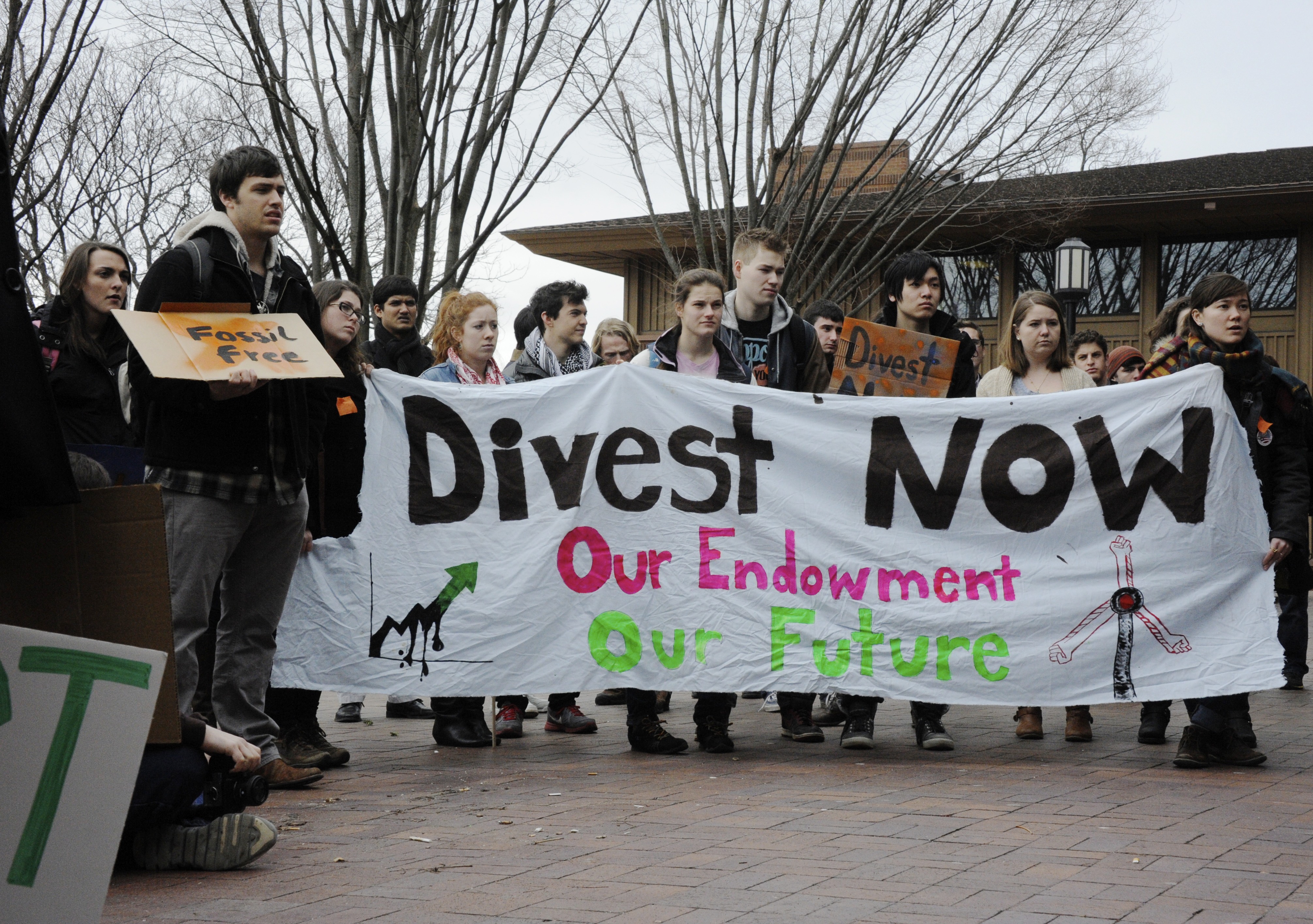With anger and with hope, I have been following striking, bargaining, and protest news at the University of Toronto, at York University, and around Quebec universities this year. To anyone following events in Ontario and Quebec this spring, it could not be more clear that Canadian universities are facing a broad array of complex crises.
While climate change has not been at the forefront of many of our conversations about wages and tuition, it is among the crises that Canadian universities face, and it is altogether inextricable from the many others.
Over the past three years, a growing number of campaigns have sprung up across Canada urging universities to divest their endowments from fossil fuels. These groups argue that the problems facing Canadian universities are not only broad, but also deeply rooted. Divestment advocates around the world contend that climate change must remain part of our public conversation, especially as we seek to revise our models of institutional life in the direction of greater equity and inclusivity.
As I work and study on unceded Mi’kmaq land, at the University of King’s College and Dalhousie University, I have been reflecting on how we might broaden our deliberations about university finance enough that we begin to pay due attention to the land that the modern Canadian university occupies. As UBC Indigenous Studies professor Michael Marker writes, ”[The university] gazes toward a vast ocean horizon, but misses its own reflection. Academics often know a great deal more about the work of their international colleagues than they know about the history and ecology of the land that the university is sitting on.” It seems to me that if we acknowledge the seriousness of the climate crisis, we must take seriously the possibility that it will have implications for every aspect of institutional life in Canada.
If we sever economic considerations from ecological ones, we are in no position to fight for a more equitable and liveable university system. While divestment campaigns target endowments rather than operating budgets, principles of sustainability must govern both. It is hardly surprising that students, staff, and faculty across Canada are questioning the financial ethics, intergenerational politics, and sustainability priorities of the institutions in which they participate.
Over the course of my two years of involvement with the Divest Dal campaign at Dalhousie University in Halifax, Nova Scotia, I’ve come to believe that we have a moral requirement to refuse to invest university endowments in destructive industries. Fossil fuel divestment allows us to revoke the social license given to extractive industries around us and makes it possible for us to connect the dots between the industries fuelling the climate crisis and the people experiencing its worst impacts. If it is wrong to destroy the earth that sustains all of our research and teaching, then it is also wrong to profit from that destruction.
So far, while twenty-two American universities have committed to divest (including Syracuse University last week), no Canadian university has yet committed to the full divestment of its endowment holdings. In November of 2015, Dalhousie University’s Board of Governors voted against divesting its endowment, but Dalhousie’s senate is still committed to research the issue. Importantly, Dalhousie’s Board of Governors refused to divest in spite of the fact that they admitted that they could find no evidence that divestment would have adverse effects on Dalhousie’s finances.
At that time, they declared that their primary concern was a fear of losing sponsorship from fossil fuel companies.
There is irony, then, in the fact that Dalhousie’s stance is financially questionable as it is ethically reprehensible. Oil prices are falling at astonishing rates, while Forbes magazine, the Rockefeller Foundation, the IPCC, the IMF, The Guardian, and myriad other organizations around the world espouse strong financial arguments in favour of divestment. As more and more fund managers recognize the benefits of uncontaminated investments, divestment becomes easier and easier.
It is because we believe that change is possible that divestment organizers, students, faculty, and staff continue to meet together, to research divestment, to hold administrators accountable to university missions, and to march through our campuses with banners in our hands.
Divestment alone will not solve the crises facing Canadian universities, nor will it halt climate change, but it is a means by which we can strengthen the integrity of our institutional life, challenge extractive industries, and show solidarity with those on the front lines of the climate crisis. This work is not simply our hope — it is it is our obligation.



